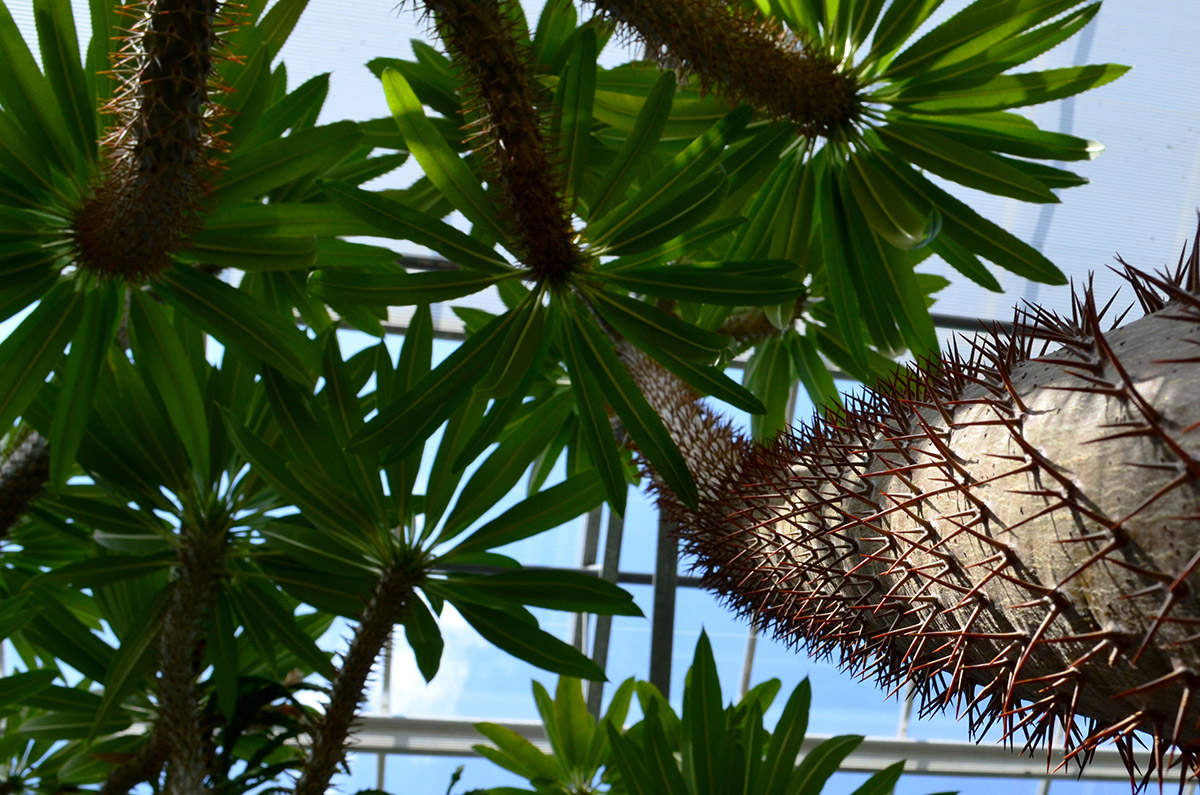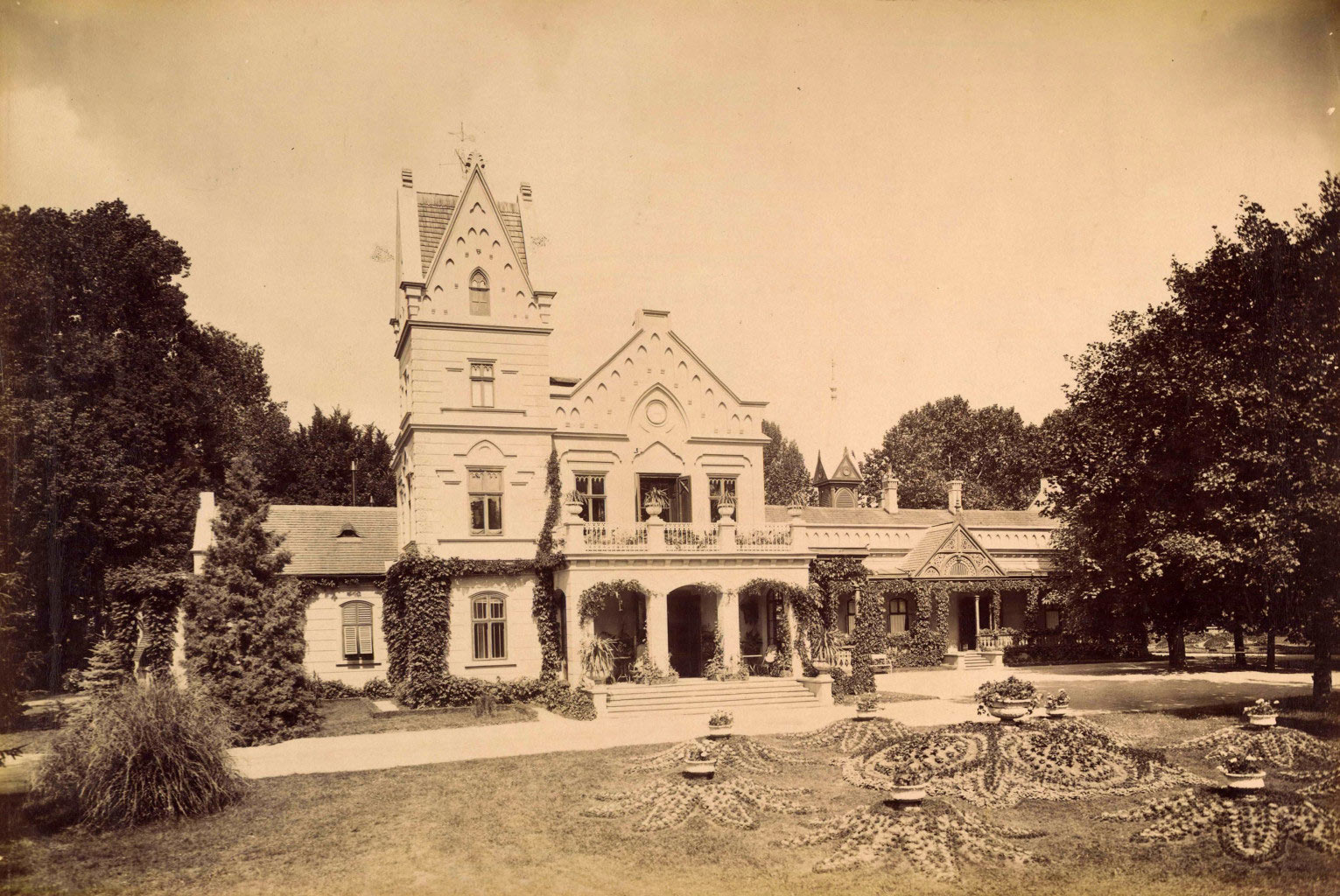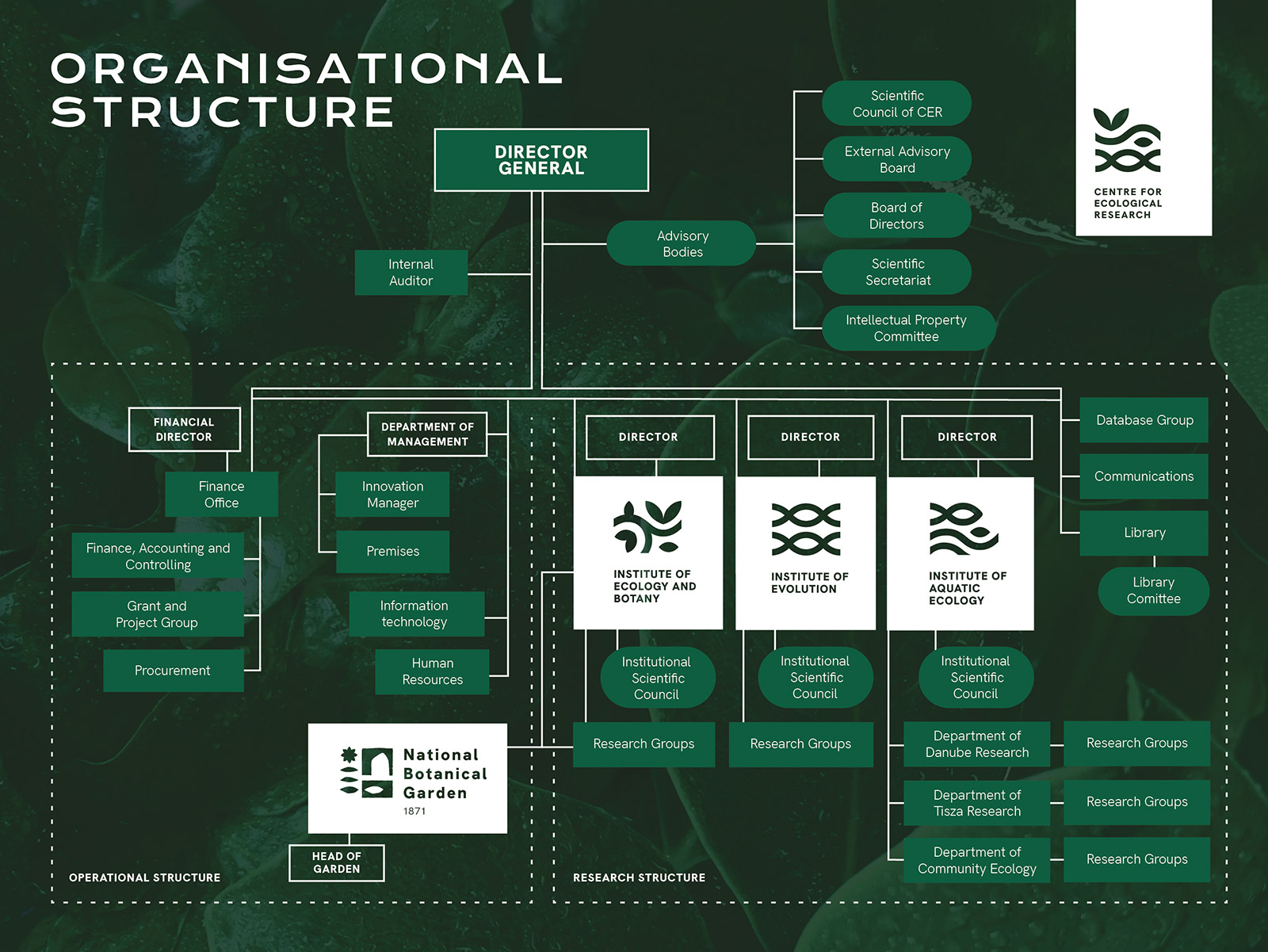Scientific leaders
External Advisory Board
Management
-
Kerkai, Dóra Financial Director
-
Fráter, Erzsébet Head of Garden, National Botanic Garden
-
Karoliny, Diana Head of Department of Management
-
Draskóczy, Eszter Head of Communications
-
Vass, Anna Johanna, PhD Library Manager
-
M. Nagy, Domonkos Administration and Innovation Manager
-
Tóthné Nagy, Adrienn Secretary of the Director-General
-
Mátyók, Henrietta Secretary of the Executive Director
National Botanical Garden

National Botanical Garden
Hungary's richest, internationally renowned botanical garden showcases 13,000 plant species and varieties in a sentimental landscape garden that dates back two centuries. A national nature reserve and historic monument, a strategically important gene bank, an inexhaustible repository of research and education, a living museum. An ecotourism attraction offering experiences, curiosities and programs in every season, visited by more than 100,000 visitors a year.
Our history
The Hungarian Academy of Sciences (MTA) reorganised its network of research institutes in 2011. Thus, on 1 January 2012, it established the MTA Centre for Ecological Research. During the transformation, the MTA Institute of Ecology and Botany and the MTA Danube Research Institute were integrated into the MTA Balaton Limnological Research Institute. Currently, our institution is called ELKH Centre for Ecological Research, and its three institutes are the Institute of Ecology and Botany, the Institute of Aquatic Ecology and the Institute of Evolution.

The Hungarian Academy of Sciences (MTA) reorganised its network of research institutes in 2011. Thus, on 1 January 2012, it established the MTA Centre for Ecological Research. During the transformation, the MTA Institute of Ecology and Botany and the MTA Danube Research Institute were integrated into the MTA Balaton Limnological Research Institute. Currently, our institution is called ELKH Centre for Ecological Research, and its three institutes are the Institute of Ecology and Botany, the Institute of Aquatic Ecology and the Institute of Evolution.














